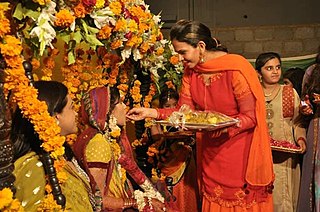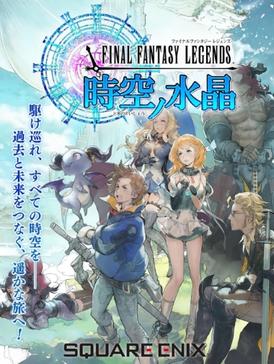Practice
A swishing party usually has a host who lays out guests' items at the venue after the guests have arrived. The host sends one group of guests to look at the items while other groups wait or do an activity. When an allocated amount of time has passed, the groups rotate. When all guests have seen the items, the host places everyone's name into a hat or bowl and draws them one at a time; when a guest's name is called, he or she claims an item. The host waits for only a few seconds before calling out the next name. The remainder of the items are then donated to charity by the host.
There are several types of variations. If the swish is for charity, attendees have their names placed into the bowl along with an extra amount for a donation; swishes can be focused on specific items like clothes, crockery, shoes, handbags, and accessories; they can be held for family, friends, or workmates; or they can be less orderly, as a free-for-all instead of a drawing by name.

A gift or a present is an item given to someone without the expectation of payment or anything in return. An item is not a gift if that item is already owned by the one to whom it is given. Although gift-giving might involve an expectation of reciprocity, a gift is meant to be free. In many countries, the act of mutually exchanging money, goods, etc. may sustain social relations and contribute to social cohesion. Economists have elaborated the economics of gift-giving into the notion of a gift economy. By extension the term gift can refer to any item or act of service that makes the other happier or less sad, especially as a favor, including forgiveness and kindness. Gifts are also first and foremost presented on occasions such as birthdays and holidays.

The Japanese tea ceremony is a Japanese cultural activity involving the ceremonial preparation and presentation of matcha (抹茶), powdered green tea, the procedure of which is called temae (点前). While in Europe it is known as the "tea ceremony", it is seldom ceremonial in its practice. Most often tea is served to family, friends, and associates; religious and ceremonial connotations are overstated in European places. The English term "Teaism" was coined by Okakura Kakuzō to describe the unique worldview associated with Japanese tea ceremony, as opposed to focusing just on the ceremonial aspect, a perspective that many practitioners frown upon.

Dame Lesley Lawson, widely known by the nickname Twiggy, is an English model, actress, and singer. She was a British cultural icon and a prominent teenaged model during the swinging '60s in London.

Ready Steady Cook is a BBC daytime TV cooking game show. It debuted on 24 October 1994 and the last original edition was broadcast on 2 February 2010. The programme was hosted by Fern Britton from 1994 until 2000 when celebrity chef Ainsley Harriott became the new host. In August 2000, when Harriott took over, the duration of the programme was extended from 30 to 45 minutes.

Used goods, also known as secondhand goods, are any item of personal property offered for sale not as new, including metals in any form except coins that are legal tender, but excluding books, magazines, and postage stamps. Used goods may also be handed down, especially among family or close friends, as a hand-me-down.
Home exchange, also known as house swapping, is a form of lodging in which two parties agree to offer each other homestays for a set period of time. Since no monetary exchange takes place, it is a form of barter, collaborative consumption, and sharing. Home exchange can cover any type of residence including apartments, houses, holiday cottages, boats, or recreational vehicles. It can include an exchange of the entire home or just a room. The length of the swap can vary from a weekend to over a year. The swap can be simultaneous or non simultaneous. Home exchanges are usually arranged via specific types of social networking services, most of which charge a fee.
Knight Online is an MMORPG developed by Mgame Corporation.

Audition Online, also known as X-BEAT in Japan and popularly called AyoDance in Indonesia, is a free-to-play multiplayer online casual rhythm game produced by T3 Entertainment. It was originally released in South Korea in 2004 and has been localized by various publishers around the world. Audition Online is free to play, but earns revenue by selling virtual items such as clothes for the player's avatar.

Informal wear or undress, also called business wear, corporate/office wear, tenue de ville or dress clothes, is a Western dress code for clothing defined by a business suit for men, and cocktail dress or pant suit for women. On the scale of formality, it is considered less formal than semi-formal wear but more formal than casual wear. Informal or undress should not be confused with casual wear such as business casual or smart casual; most situations calling for “informal wear” will usually tolerate casual dress to varying extents.

Marriage in Pakistan pertains to wedding traditions established and adhered by Pakistani men and women. Despite their local and regional variations, marriages in Pakistan generally follow Islamic marital jurisprudence. Marriages are not only seen as a union between a husband and a wife, but also an alliance between their respective families. These traditions extend to other countries around in the world where Overseas Pakistani communities exist.

A clothing swap or CLOSWAP is a type of swapmeet wherein participants exchange their valued but no longer used clothing for clothing they will use. Clothing swaps are considered not only a good way to refill one's wardrobe, but also are considered an act of environmentalism. It is also used to get rid of and obtain specialist clothing. Participants have numerous motivations but also face barriers during swaps. These events are becoming more and more popular for numerous reasons.

Build-A-Bear Workshop is a simulation video game for the Nintendo DS based on the retailer of the same name. It was developed by French company Neko Entertainment and published by The Game Factory for release on November 5, 2007. A follow-up, known as Build-A-Bear Workshop: A Friend Fur All Seasons, was released for the Wii in 2008. Two additional video games, Build-A-Bear Workshop: Welcome to Hugsville and Build-A-Bear Workshop: Friendship Valley, were released for the Nintendo DS and Wii, respectively, in 2010. Since The Game Factory went out of business before they were released, both games were published by Activision instead.
Foodie 2 Shoes (味分高下) is a Hong Kong television variety game show. It debuted in August 2007 until October 2007, broadcast from Tuesday to Friday. It consist of 34 episodes and a special ending episode. Foodie 2 Shoes is a joint collaboration between Taiwan and Hong Kong. The two hosts are Taiwan's popular singer/composer Harlem Yu and Hong Kong's actor/singer Patrick Tang. Along with the two hosts are eight lady helpers each representing a type of fruit or drinks known as Angels of Taste. Because of the difference in the host's background and native language, they both would attempt to speak each other's language, creating an entertaining atmosphere for the audience. In the beginning of each episode, Harlem would attempt to speak a Cantonese phrase or Patrick attempting a Taiwanese phrase, making the audience laugh and guessing what they are saying. Afterward, the hosts would give away a free zodiac figure made of 14k gold to an audience that can guess correctly the ingredients of a food sample. The show then continues with a variety of games that enable guests to use their five senses to differentiate various foods. Every two episodes will have four guests each in two pairs, often celebrities or famous figures. The purpose of the show aimed to draw the two culture together with food. Within each sense game, the winning pair will receive cash as reward and the amount differs in each game. At the end of each episode, the two pair of guests must play a simple game to determine who gets all the cash that was rewarded. Foodie 2 Shoes is the name of the first season. After it ended, the show aired its second season as Boom Boom Ba with new game concepts from February 2009 until end of March 2009.

The russefeiring is a traditional celebration for Norwegian high school students in their final spring semester. Students that take part in the celebrations are known as russ. Students in high school normally prepare for this celebration from the start of the year. Russ celebrations normally happen before the final term exam for the high school students before they are off to university or college. Russ have different ways of celebrating; some purchase large buses and drive around partying all night, while others may simply buy a van or a car. The russefeiring traditionally starts around 20 April and ends on 17 May, the Norwegian Constitution day. Participants wear coloured overalls. Some form groups that name a bus, car or van. Some celebrate almost continually during this period. Drunkenness and public disturbances are regularly linked to the celebration.
In the United States and Canada, weddings follow traditions often based on religion, culture, and social norms. Most wedding traditions in the United States and Canada were assimilated from other, generally European, countries. Marriages in the U.S. and Canada are typically arranged by the participants and ceremonies may either be religious or civil. There is a tradition that the prospective bridegroom ask his future father-in-law for his blessing.

The wedding industry in the United States is the provider of services and goods for weddings in the U.S., taken as a whole. Every year in the United States, there are approximately 2.5 million weddings. The United States wedding industry was estimated to be worth about $70.5 billion as of 2022.

Story of Seasons, known in Japan as Bokujō Monogatari: Tsunagaru Shin Tenchi, is a farming simulation video game developed by Marvelous Entertainment for the Nintendo 3DS. It was released in Japan on February 27, 2014, and in North America on March 31, 2015. This was the first game not under the Harvest Moon franchise title in North America due to Natsume Inc.'s ownership of the name.

Final Fantasy Dimensions II, also known as Final Fantasy Legends II: Jikuu no Suishō in Japan, is a free-to-play game developed by Matrix Software and published by Square Enix for Android and iOS devices. It is the second game released in Japan with the "Final Fantasy Legends" title after Final Fantasy Legends: Hikari to Yami no Senshi. It revolves around traveling through time in order to save the world from a god.
Vinted, UAB Group, commonly known as Vinted is a Lithuanian online marketplace for buying, selling and exchanging new or secondhand items, mainly clothing and accessories.














